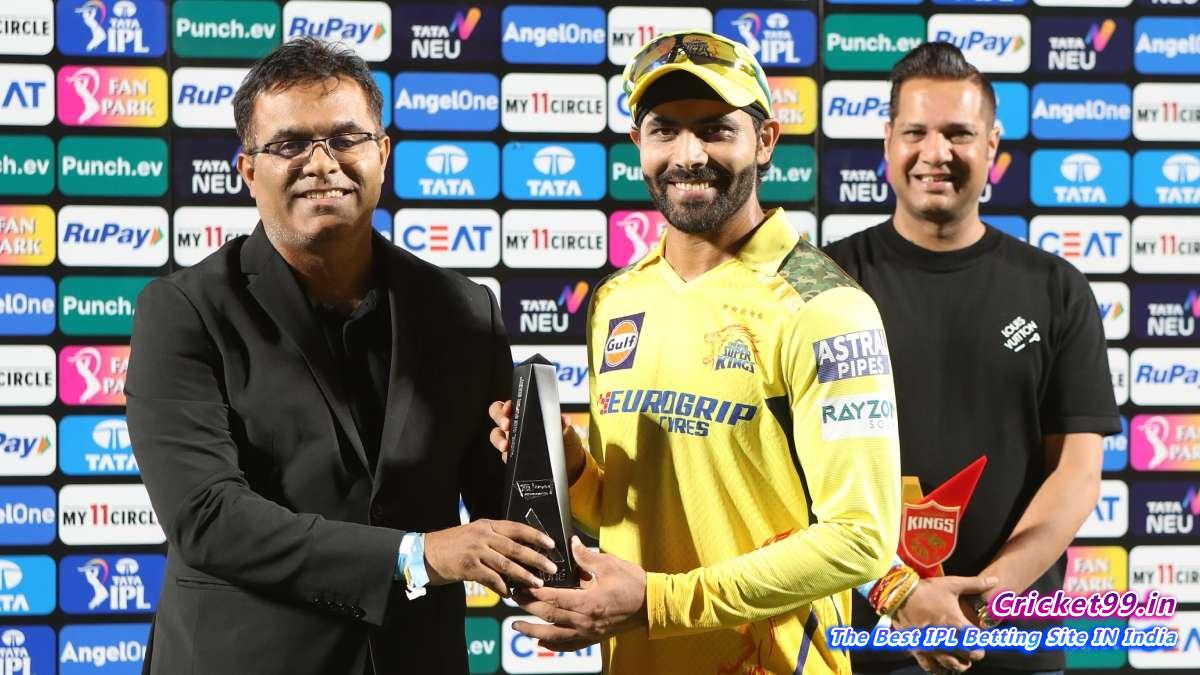
The Chennai Super Kings demonstrated their prowess on the field with a commanding display against the Punjab Kings in the intense heat of the Indian Premier League. The clash saw CSK emerge victorious, securing a win with a 167/9 score in the allotted 20 overs. The match, which unfolded at the HPCA Stadium in Dharamsala, known for its slower pitch conditions, ended with the Super Kings effectively restricting the Punjab Kings to 139/9, thereby clinching a significant triumph in their league journey.
The star of the game, Ravindra Jadeja, shone brightly with a superb all-round performance that pivoted the team towards victory. In his post-match address, Jadeja acknowledged a slight shortcoming in their total score, yet he commended his team’s disciplined bowling effort.
“We thought we were 15-20 runs short but we did not bowl loose balls in the power play and in the middle overs,” Jadeja asserted during the post-match presentation, emphasizing the strategic finesse that compensated for the runs deficit.
Highlighting the critical contributions from the pace attack, Jadeja praised his teammate Tushar for grabbing two pivotal early wickets. He then lauded the combined efforts in the middle overs, where he, alongside Mitch, strangled the opposition’s scoring rates.
The crux of the challenge, as evidenced by Jadeja’s comments, lay in the batting conditions, particularly during the day-game scenario which rendered the pitch slow and tricky for timing shots. “It (the pitch) always seems flat in the power play. But when the ball gets old, it does not come on as expected,” he explained, noting the unpredictability faced when playing at a new venue, with variable turn and stoppage on the ball.
On his batting approach, Jadeja described his responsibility for cementing partnerships and transitioning to aggressive shot-making towards the innings’ end. His analytic view of the game pointed out the correlation between early wickets and the loss of momentum, contrasting it with matches where balanced phase-wise performance has led to victory.
Concurring with Jadeja’s assessment of the pitch, CSK’s Gaikwad shared the sentiment that the surface played slow with the ball not coming on and experiencing low bounce to boot. Despite a promising start by the team, consecutive wicket losses thwarted their progress, leading Gaikwad to reason that their final score fell approximately ten runs short of a more secure total. He admitted the possibility of pushing the score to the 180-200 threshold had the initial momentum been maintained.
The essence of CSK’s strategy in overcoming the batting challenges revolved around their adaptive framework. The dynamics between pacing the innings and knowing when to accelerate were manipulated expertly by the Super Kings, resulting in a cohesive team effort that culminated in a well-deserved win.
In the grand scheme of the tournament, the victory serves not only as a morale booster but as a testament to the team’s ability to overcome adversities through calculated risk-taking and genuine teamwork. With each player aware of their role and the pitch’s quirks, CSK has once again illustrated why they are considered formidable opponents in the fiercely competitive environment of the Indian Premier League.










